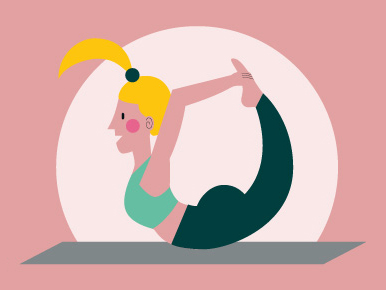'Tis the season to be festive, when we finally get to indulge on all the amazing decadent dishes offered this time of year.
But we know it all too well - the holidays can be tough on the waistline, not to mention our stress levels. Does that ring a (jingle) bell?
Below are some expert tips* on how to stay healthy during the festive season - to help you enjoy the celebrations, guilt-free.
Surviving the food galore
Turkey, ham, salmon, roast veges, pavlova, ice cream... with all that fantastic food on hand, it can be tempting to give yourself a 'Christmas stuffing'. Not to worry; you can still be festive without the extra calories. How, you ask?
- Don't go to a festive dinner hungry - How often do you skip meals in preparation for an event, only to overload on the nibbles before the mains are even being served? Start the day with a healthy and balanced breakfast instead, or eat a snack beforehand. A couple of glasses of water will also fill you up a little while keeping you hydrated.
- Listen to your body - There's a thin line between 'not being hungry' and 'being full'. Try not to cross that line by listening to your hunger and fullness cues, and give yourself 20 minutes to pause before starting another dish. That's how long it takes for your brain to know you're full. Chances are, you may realise you've had enough for the day.
- Eat slowly - As they say, time flies when you're having fun, so it can be easy to lose track of how much you've eaten, and how fast. Try to eat slowly, and focus on socialising rather than eating. Again, this will give your stomach time to signal it's not really hungry anymore.
- And if you're the host... - Make things easier on your guests by offering healthier substitutes. For example, you can replace sour cream with Greek yoghurt, meat with fish, and white rice with brown rice.
Stay hydrated
Whether it's a few beers at Christmas, a couple of bottles of Champagne at New Year's Eve or some glasses of wine in the backyard, holiday drinking is something to keep an eye on.
Pace yourself, trying to keep a tab of how much you're drinking. And don't forget to stay hydrated, by alternating each drink with a glass of water throughout the day. You will thank yourself the next morning. Also, limit your intake of high-calorie cocktails - like martinis and margaritas - as much as possible.
Stay active
After a long year of work, sitting around watching TV can be tempting.
Luckily, in New Zealand we're blessed with natural wonders, majestic beaches and breath-taking tracks, so staying active isn't all that hard. If you don't have time to hit the gym, twenty minutes of exercise is all you need: schedule a quick walk in the park, a swim at your local beach, a short yoga session or even a round of backyard cricket with the family.
Be kind to yourself
Keep things in perspective and don't expect everything to be perfect, all the time. For example, if you over-indulge, don't be too hard on yourself: if there's one time we can all give ourselves permission not to worry, it should be the festive season. Remember: overeating one day will not break your plan, so be kind to yourself.
Take some 'me time'
With so much going on, the holidays can also be a tad stressful. But don't let a busy schedule leave you feeling overwhelmed.
Make time for yourself - just yourself. In the whirlwind of the festivities, it's important to take to relax and unwind, be that reading a great book, watching your favourite move for the umpteenth time, or just getting a good-night sleep. Pamper yourself - you deserve it!
Like to be healthy all-year-round (and through life)?
Looking at protecting your health in the new year? Health insurance is designed to give you fast, access to private treatments and diagnoses for the cost of your premium - making keeping your health in check easier.
Get your health insurance quotes in minutes, or learn more about health insurance through the life stages.
Need support? Call us on 0800 800 400, start a Live Chat or fill in our contact form to get in touch with our team.
* Sources:
Disclaimer: Please note that the content provided in this article is intended as an overview and as general information only. While care is taken to ensure accuracy and reliability, the information provided is subject to continuous change and may not reflect current development or address your situation. Before making any decisions based on the information provided in this article, please use your discretion and seek independent guidance.












